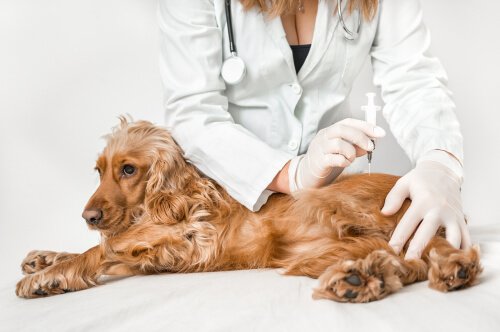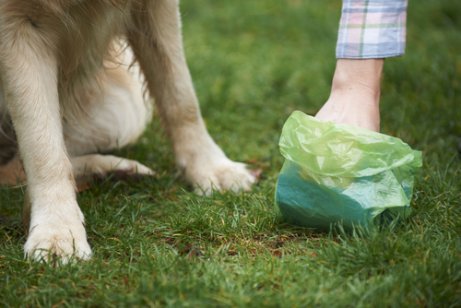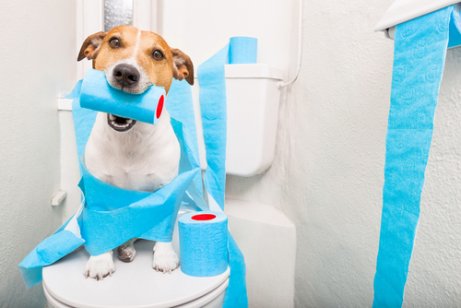Can Your Dog Give You Salmonella?

Salmonella is produced by bacteria that affect both people and pets. In this article, we’ll tell you what you should know about this disease, how to prevent your dog from getting it, and how to reduce the infection. We’ll also answer the question as to whether your dog can give you Salmonella.
Salmonella in dogs: What you need to know
The bacterium Salmonella can get into a dog’s body through food that isn’t washed properly, contaminated water, or the feces of another infected animal. Many dogs that consume raw food are vulnerable to this disease. In addition, dogs that are suffering from malnutrition, overcrowding, or immunosuppressive problems are also at risk.
Animals with intestinal parasites or who live in unhealthy conditions are also more likely to contract Salmonella. Puppies and older dogs are also at-risk groups for this infection.
Symptoms
The main symptoms of this bacterial infection are diarrhea, vomiting, and fever. If not treated in time, the animal may suffer from dehydration, as well as abscesses in the liver, lungs, or kidneys (if bacteria enters the bloodstream).
To determine if your pet has Salmonella, you need to get a feces test done. Some veterinarians may also request a blood test in cases of acute infection.

Since Salmonella is usually resistant to many common antibiotics, professionals only recommend medical treatment for severely ill dogs. This treatment is typically sulfonamides or quinolones. In the rest of the cases, however, replenishing liquids and a healthy diet are usually enough.
Preventing Salmonella
Firstly, you should do everything in your power to prevent your pet from catching Salmonella. To do this, you should thoroughly wash any food you give them to eat. In the case of raw meat, make sure it comes from a hygienic store.
You should also pay attention to your dog’s behavior while out on walks or in contact with other pets. Prevent him from sniffing or eating feces and from drinking water if the container isn’t clean.
If you have other dogs at home, be very careful with hygiene so they don’t infect each other or other members of the family.

Can your dog give you Salmonella?
Experts consider Salmonella to be a disease that is zoonosis. In other words, it can be transmitted to humans. So yes, your dog can give you Salmonella. For this reason, you have to be very careful with hygiene in your home. Even if you don’t think your pet has an infection, you may just not know it yet.
For example, clean up dog droppings the same day using gloves and then close the garbage bag tightly. Another useful prevention measure is disinfecting any areas where the animal usually defecates.
After you finish handling the dog’s excrement, it’s important to wash your hands thoroughly. We also recommend that you don’t let your pet lick your face. After playing with your pet, you should also use some antibacterial soap.
Believe it or not, dogs and cats are two of the main animals that can give you Salmonella. If you have turtles or birds as pets – including chickens – you should also take precautions.
Therefore, the answer to the question of whether your dog can give you Salmonella is a resounding ‘yes’. In other words, it’s important to avoid sources of contagion as much as possible and maintain proper hygiene measures in your home. That way, you can avoid your pet contracting Salmonella and make sure your dog doesn’t give you Salmonella.
All cited sources were thoroughly reviewed by our team to ensure their quality, reliability, currency, and validity. The bibliography of this article was considered reliable and of academic or scientific accuracy.
- Terrier, B., & Martinez, V. (2012). Salmonelosis. EMC – Tratado de Medicina. https://doi.org/10.1016/s1636-5410(06)70402-0